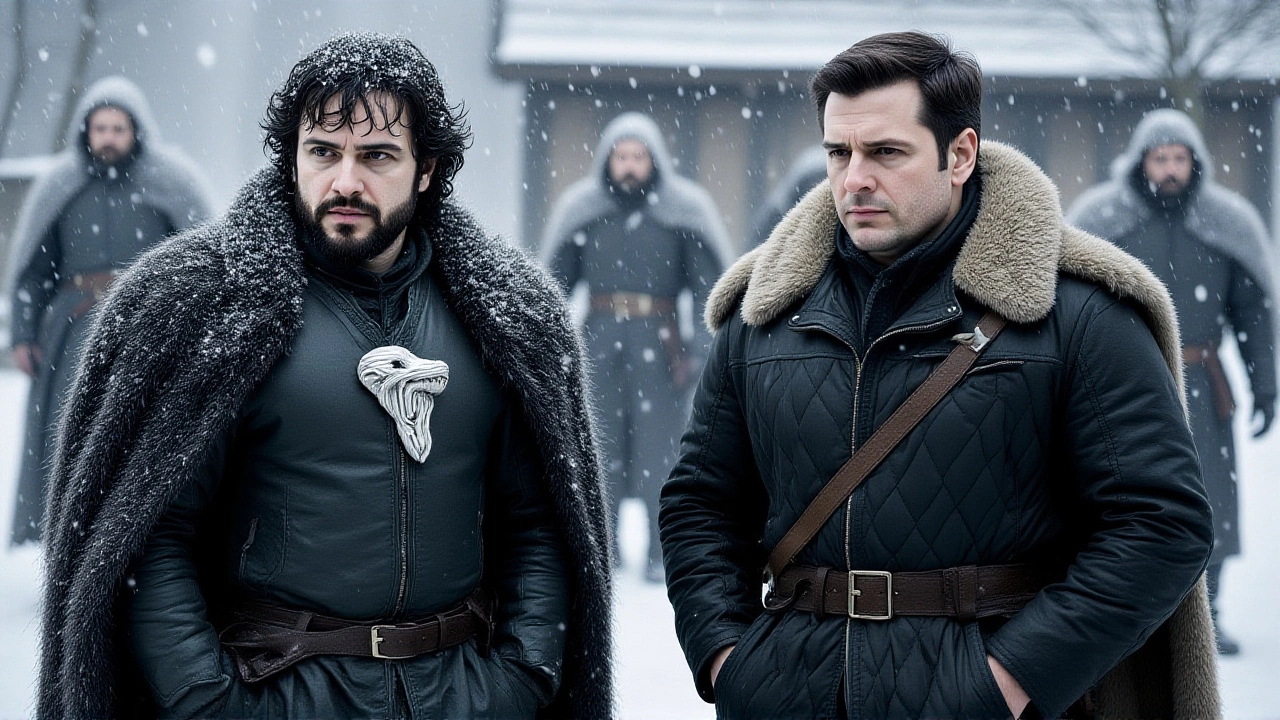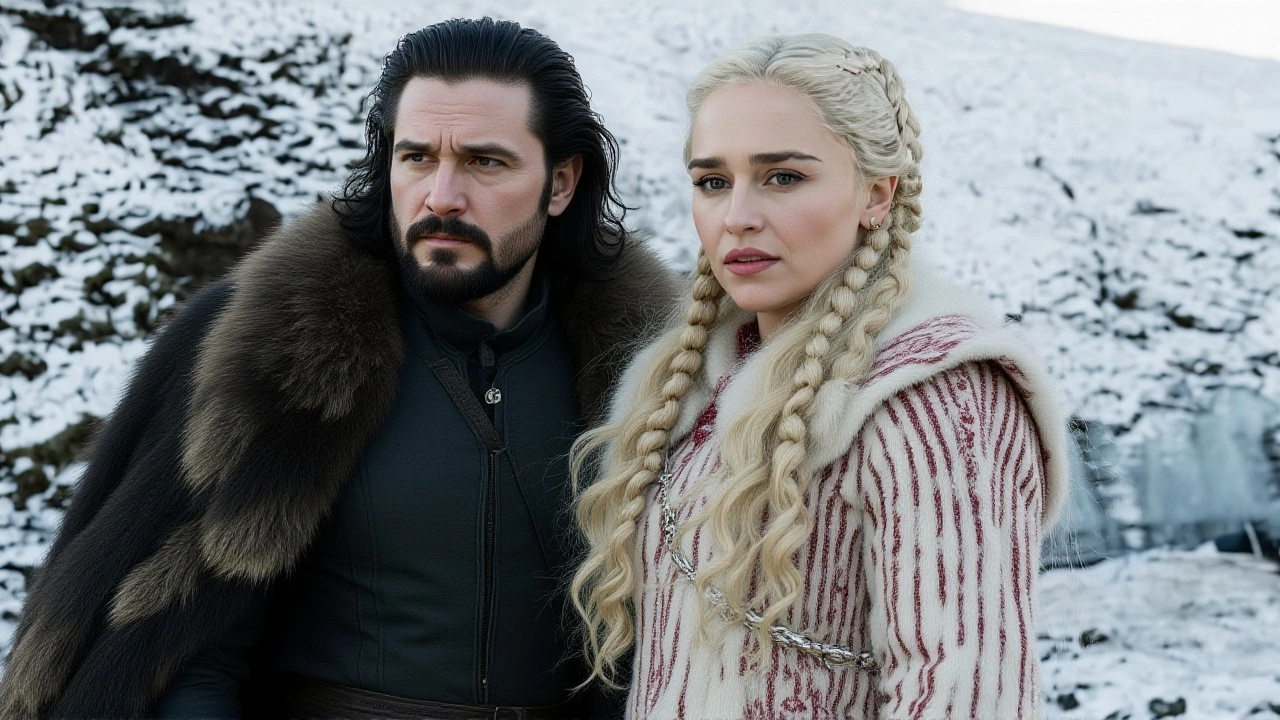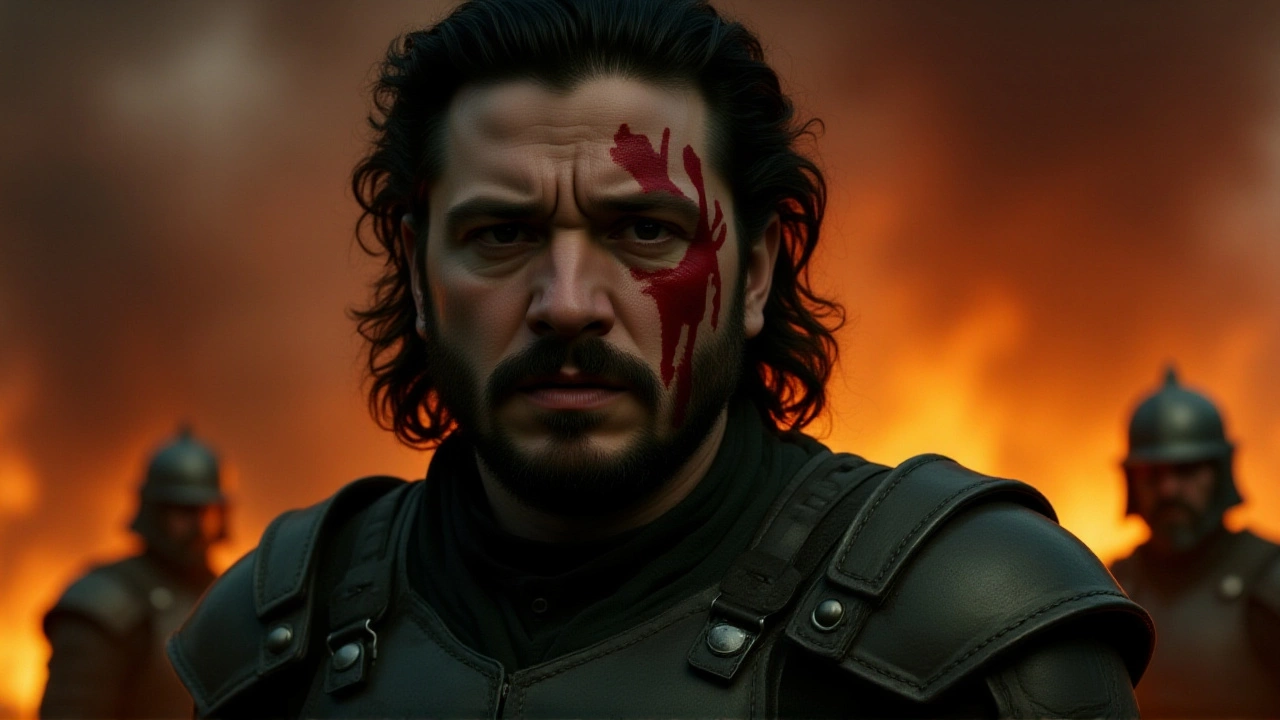George R.R. Martin didn’t just drop a bombshell at Iceland Noir—he rewrote the future of Westeros. On November 21, 2025, the 76-year-old author of A Song of Ice and Fire stood before a packed audience in Reykjavík, Iceland, and confirmed what fans had dared to hope: HBO is developing five or six new Game of Thrones spin-offs, including at least one sequel series set after the fall of the Iron Throne. The revelation came just hours after HBO quietly confirmed the cancellation of the long-rumored Jon Snow sequel, starring Kit Harington, leaving fans stunned—and curious. This isn’t the end of the story. It’s the beginning of a new chapter, one that could stretch well into the next decade.
What Happened to Jon Snow’s Sequel?
The Jon Snow project, announced in 2021 and developed in close collaboration with Harington at 30 Hudson Yards in New York City, was meant to follow the Night’s Watch lord beyond the Wall, living among the Free Folk. It had script drafts, concept art, and even early costume designs. But by late 2024, momentum faded. HBO’s internal reviews reportedly found the narrative too narrow, too tied to a single character who had already completed his arc. In a November 21 YouTube video from Emergency Awesome, a source close to the studio confirmed the project had been "tabled." Not scrapped. Not dead. Just paused. "It was a thing for a little while," the video noted. And now, with Martin’s comments, it’s clear HBO chose to redirect that energy elsewhere.What’s Still Alive—and What’s Coming
While Jon Snow’s story may be shelved, the Game of Thrones universe is more active than ever. HBO has officially renewed House of the Dragon for a fourth season, with a tentative 2028 premiere. That’s not a typo. The prequel, created by Martin alongside Ryan Condal and Miguel Sapochnik, is now locked in as a long-term franchise pillar. Meanwhile, A Knight of the Seven Kingdoms: The Hedge Knight, starring Peter Claffey and Dexter Sol Ansell, received a second-season renewal ahead of its January 18, 2026 debut. That’s rare—usually, studios wait for a show to air before committing. This signals confidence.And then there’s the unannounced stuff. 10,000 Ships, an animated series based on the history of Daenerys’s mother, Rhaella Targaryen, is in active development. So is a live-action prequel centered on Aegon the Conqueror, the founder of the Targaryen dynasty. Both are prequels. But Martin didn’t stop there.

The Sequels Are Real—And They’re Wild
"There are some sequels," Martin told the crowd in Reykjavík, his voice carrying the quiet excitement of someone who’s just handed fans a map to uncharted territory. The details are sparse, but rumors are flying. One leading theory? A series following Maisie Williams’s Arya Stark as she sails west of Westeros into the unknown. Williams herself has said she’d return "if the story was right." And according to SFF Gazette, Martin hinted at something even stranger: Arya might not just explore new lands—she might become something else entirely. "There’s all kinds of references to krakens and leviathans," noted Emergency Awesome, suggesting a mythic, almost supernatural turn.Other possibilities? Following Bran Stark as the Broken King, ruling a fractured realm from the Great Sept of Baelor. Or a deep dive into Sansa Stark’s reign as Queen of the North, balancing diplomacy with the ghosts of Winterfell. The most ambitious idea? Jumping forward 40 to 50 years, where the original characters are legends, their deeds twisted into ballads and bedtime stories. Imagine a new generation of lords and ladies, raised on tales of dragons and betrayals—while the real consequences of those wars still fester.
Why This Matters Beyond Fan Service
This isn’t just about keeping the franchise alive. It’s about legacy. HBO’s Game of Thrones earned $1.2 billion in global revenue in 2023 alone, according to Warner Bros. Discovery’s annual report. But the real value isn’t in the numbers—it’s in cultural gravity. The show shaped how we watch TV. It made fantasy mainstream. And now, HBO is betting that the world still wants to live in Westeros. Not just revisit it. Live in it.That’s why they’re spreading the risk: animated, live-action, prequels, sequels. One project might flop. Another might become the next House of the Dragon. And if one of these sequels lands in 2031, as industry insiders suggest, it’ll be the first major fantasy series to span over two decades of television history. No other franchise has done that. Not Star Wars. Not Lord of the Rings. Not even Doctor Who.

What’s Next? The Timeline Is Set
HBO’s slate is now mapped out through at least 2032. Here’s the rough order: A Knight of the Seven Kingdoms (Jan 2026), House of the Dragon S4 (2028), 10,000 Ships (2029), the Aegon prequel (2030), and then—possibly—the first sequel series. That’s a 7-year rollout. And it’s not random. Each project fills a different emotional niche: nostalgia, myth, legacy, reinvention. The Jon Snow cancellation? It wasn’t a failure. It was a pivot.What’s clear now: George R.R. Martin didn’t just confirm sequels. He gave us permission to dream bigger than dragons.
Frequently Asked Questions
Will Kit Harington ever return as Jon Snow?
HBO has not ruled out a cameo, but a full return is unlikely. The Jon Snow series was canceled because the studio felt his story had reached a natural endpoint. However, Martin has hinted that future sequels might include flashbacks or legendary tales told by bards—meaning Harington could appear in archival footage or as a mythic figure referenced by new characters.
Is Arya Stark’s sequel series confirmed?
No official greenlight has been given, but Martin’s comments and Maisie Williams’ openness suggest it’s among the top contenders. The concept—Arya exploring uncharted western lands and encountering sea monsters—is unique in the franchise. If produced, it would likely be a standalone season or limited series, not a multi-season epic.
Why are most of the new projects prequels?
Prequels are safer creatively and commercially. They let writers explore iconic moments—like Aegon’s conquest or the Dance of the Dragons—without contradicting established canon. They also avoid the challenge of aging main characters. Sequels, however, are riskier: they must honor the original’s tone while introducing fresh stakes. That’s why HBO is testing both paths.
How long will HBO keep making Game of Thrones content?
Industry insiders suggest HBO has secured rights and development deals through 2032. That’s at least seven more years of new content. Warner Bros. Discovery has invested over $1.5 billion into the franchise since 2019. With no signs of audience fatigue—and with global streaming demand still rising—it’s likely the world of Westeros will remain on screens for the foreseeable future.
Could any of these sequels be movies instead of series?
HBO has leaned heavily into serialized storytelling, so a film is unlikely for major sequels. But a standalone movie—perhaps an animated feature about the fall of Valyria or a live-action epic about the Long Night—could still happen as a companion piece. The studio has already used animated formats for lore-heavy content like 10,000 Ships, suggesting flexibility in format.
Is George R.R. Martin still writing the next book?
Martin continues working on The Winds of Winter, the long-awaited sixth novel in the A Song of Ice and Fire series. But he’s no longer the sole driver of TV spin-offs. He’s now a consultant and co-writer on select projects, letting other writers take the lead. This shift allows him to focus on the books while still shaping the broader universe.
